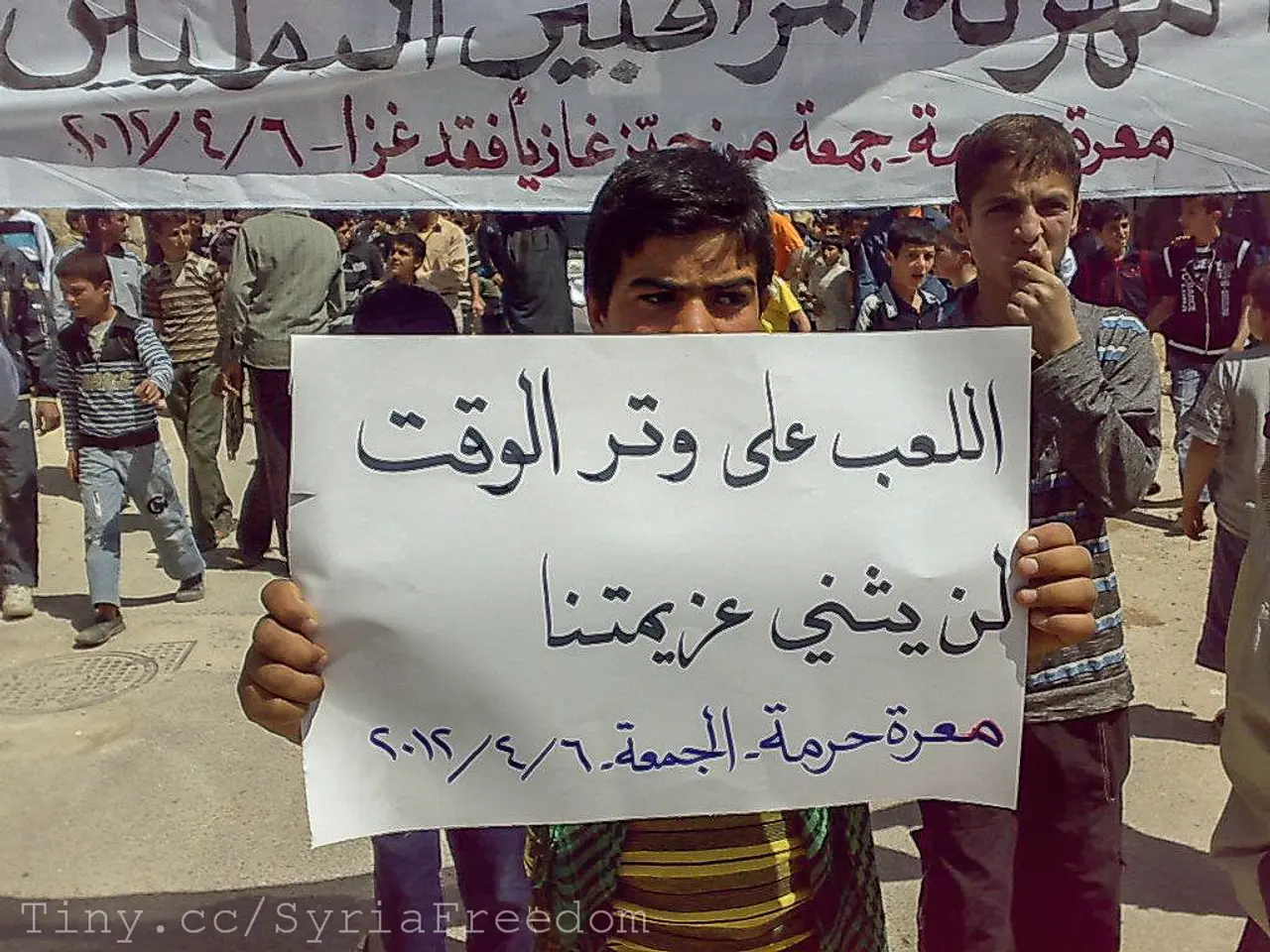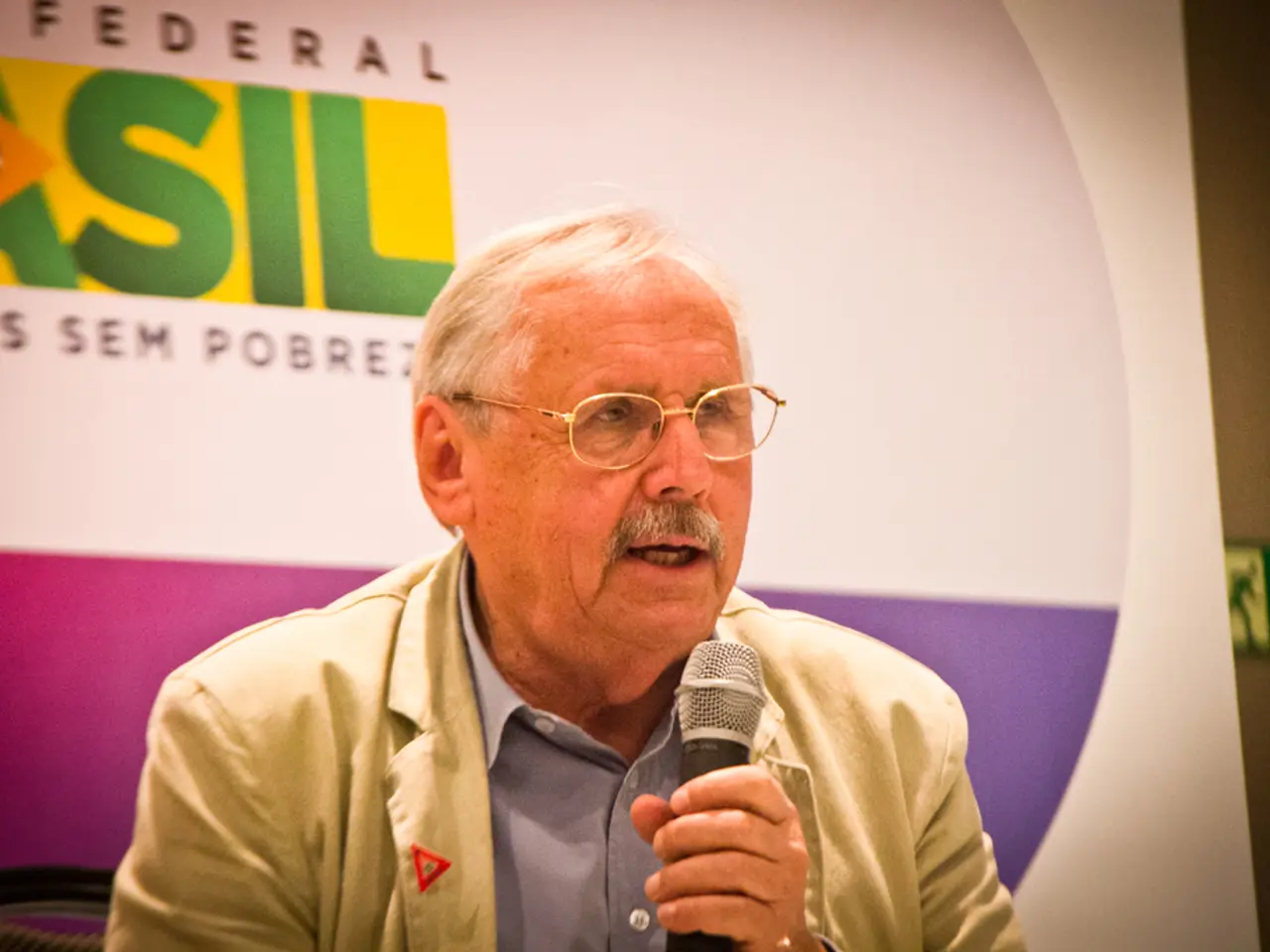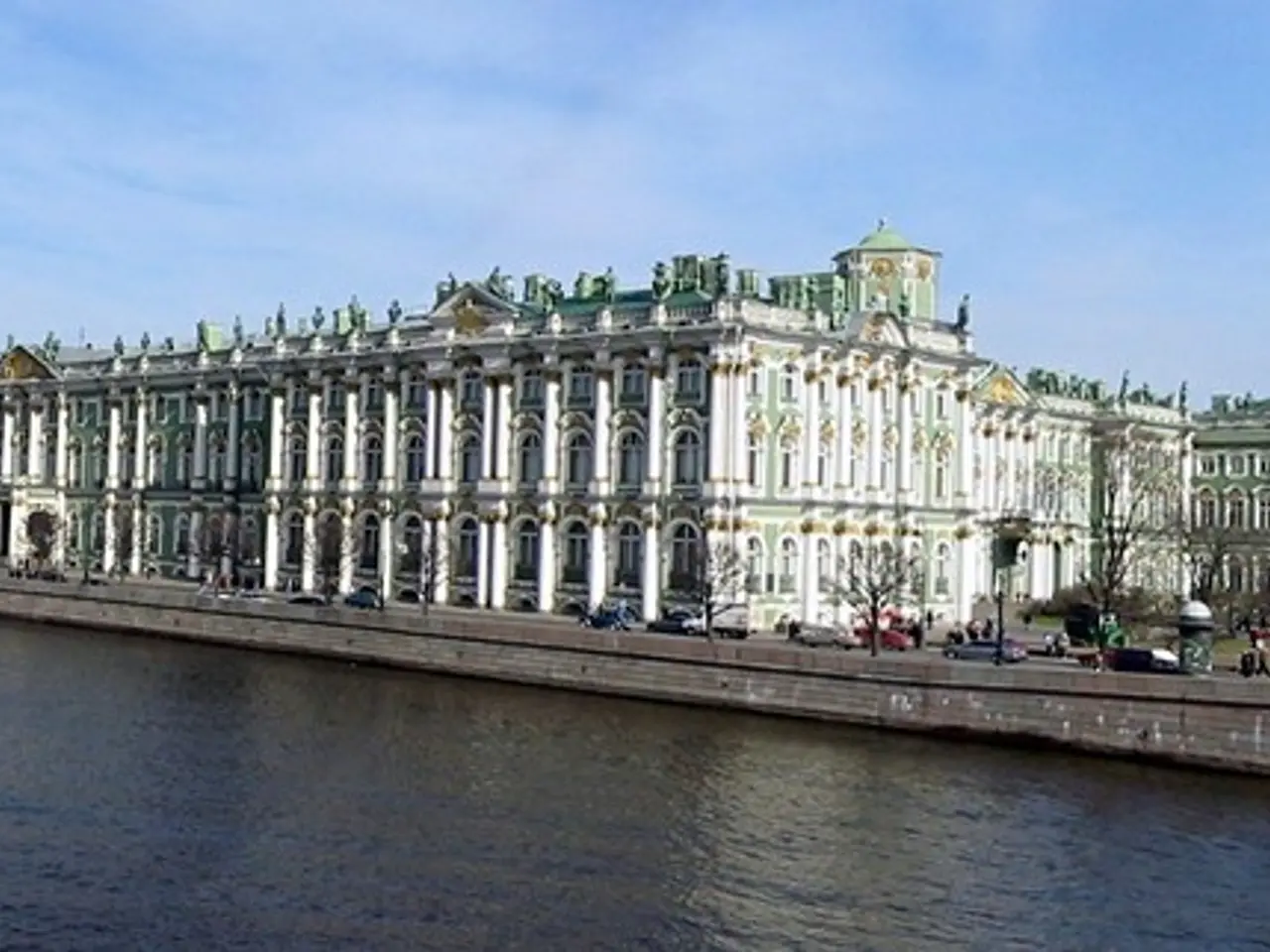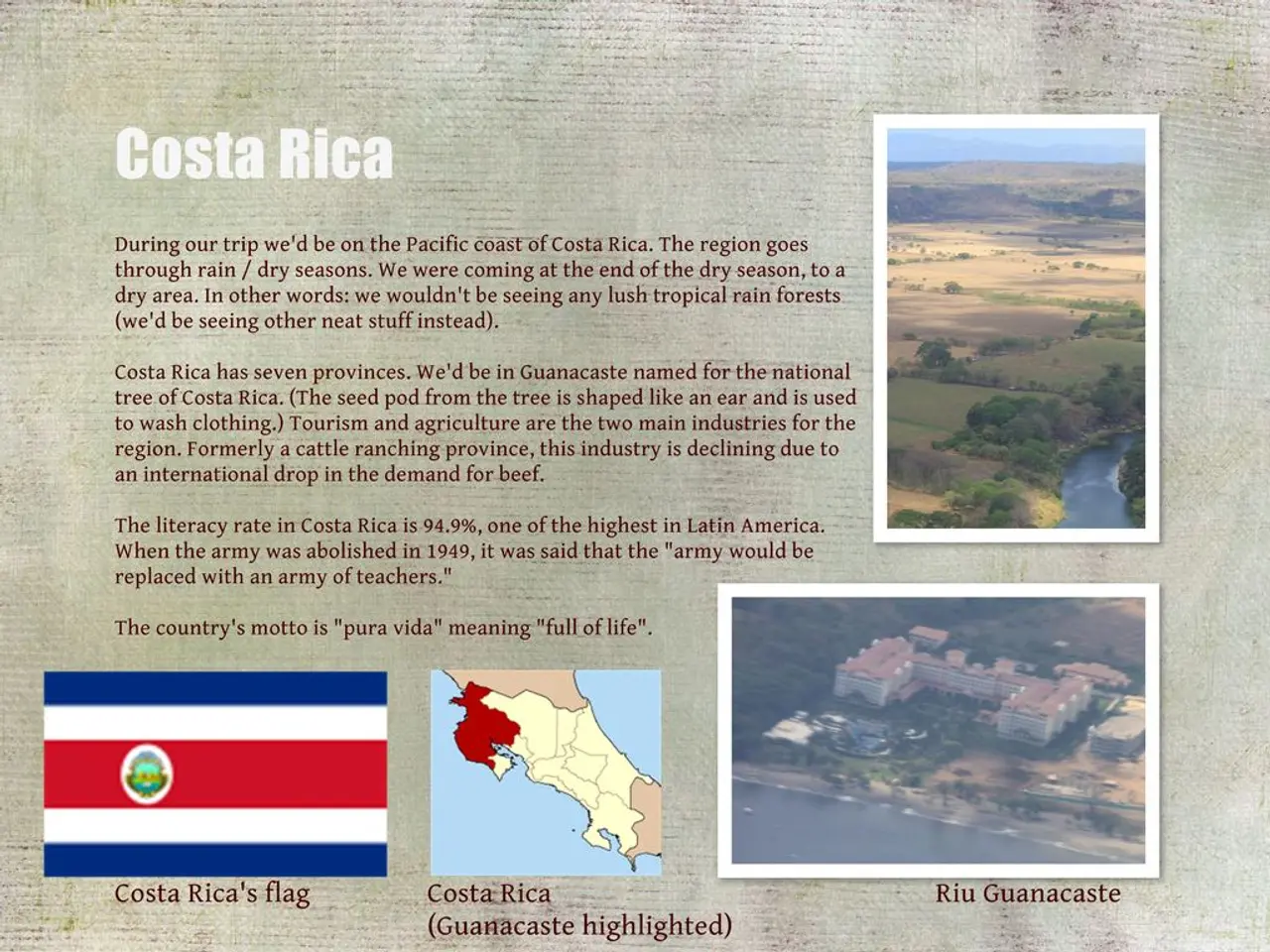German Pro-Gaza Protests Under Scrutiny: Allegations of Rights Violations and Excessive Force
Concerns escalate over freedom of speech in Germany, with the European rights body expressing unease during the Gaza protests.
Michael O'Flaherty, the Human Rights Commissioner, has vocalized concerns about German authorities' response to pro-Gaza demonstrations. The Commissioner has penned a letter to the German Interior Minister, Alexander Dobrindt, expressing worry regarding what he perceives as infringements on freedom of expression and the right to peaceful assembly.
O'Flaherty has pointed out seemingly restrictive measures taken during protests, such as Arabic language bans, limits on cultural symbols, and static gatherings as opposed to marches. Furthermore, he has called attention to demonstrators enduring intrusive surveillance, both online and in person, as well as arbitrary police checks.
The Commissioner's concerns extend to reported instances of excessive police violence, with allegations of authorities using disproportionate force against protesters, including minors. O'Flaherty has emphasized that police efforts should comply with principles of legality, necessity, proportionality, non-discrimination, and precaution.
Additionally, the Commissioner has taken notice of police actions aimed at suppressing Nakba Day commemorations, which remember the 1948 displacement of Palestinians. O'Flaherty has interrogated the apparent limitations on freedom of speech within German universities and cultural institutions, mentioning cases of foreign nationals facing deportation following their involvement in pro-Gaza activities.
The Commissioner further expressed concern about how the International Holocaust Remembrance Alliance's (IHRA) working definition of antisemitism could be misused by some German authorities to suppress legitimate criticism of Israel.
Tensions escalated in Germany as Gaza conflict began, with frequent clashes at pro-Palestinian rallies. The May Nakba protest saw demonstrators chanting slogans considered antisemitic under German law, resulting in injuries.
Previously, five students were arrested during a protest at Humboldt University for uttering anti-Israeli slogans. Police have also intervened against those displaying banned symbols, including altered Hamas slogans.
Further Reading
- Over 100,000 attend 'Red Line' protests for Gaza in Brussels and The Hague
- Sciences Po Paris Campus Closed Amid Gaza Protest
- Pro-Palestinian protests take hold in Europe as they intensify in the US
- Countering hate speech amid pro-Gaza demonstrations in Germany
- German authorities and the balancing act between freedom of expression and public order
- Cultural and linguistic rights in Europe: a closer look at Germany's pro-Gaza protest restrictions
- The concerns about German authorities' response to pro-Gaza demonstrations, extending to allegations of rights violations and excessive force, have also sparked discussions around war-and-conflicts, policy-and-legislation, and politics within general-news and crime-and-justice circles.
- Debate about the balancing act between freedom of expression and public order in Germany, particularly regarding pro-Gaza protests, has been amplified by discussions on cultural-and-linguistic rights, prompting scrutiny of relevant policy-and-legislation matters.






